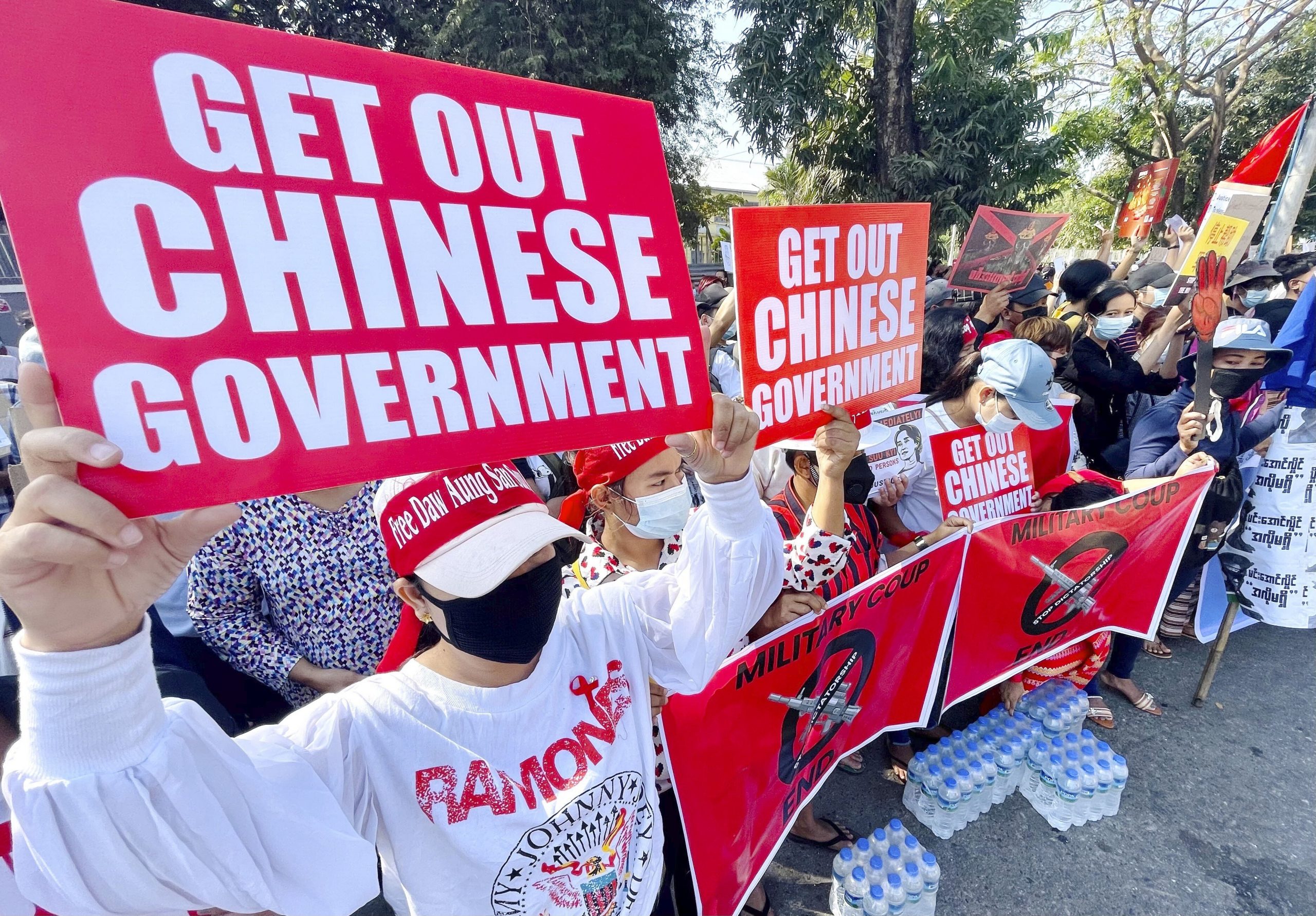
Roving Periscope: 150 killed in 6 weeks in ‘Burning Burma’
Virendra Pandit
New Delhi: Nearly 150 pro-democracy protestors have been killed and more than 2,000 arrested since February 1 when the military junta, accusing an ‘election fraud’, staged a coup in Myanmar, and toppled the democratically-elected government led by Nobel Peace Laureate Aung San Suu Kyi.
The United Nations said at least 149 people have been killed in crackdowns since the coup in February, according to media reports.
More than 400 people, including several policemen and a fireman, reportedly fled to neighboring India’s north-eastern state of Mizoram.
Since the coup, thousands of peaceful demonstrators have been staging daily protests across the Southeast Asian country. Security forces, comprising police and the army men, led by coup leader General Min Aung Hlaing, have been trying to crush the protests with an unprecedented countrywide crackdown and increasing brutality.
Recently, the angry demonstrators torched several garment factories financed and owned by the Chinese in Yangon. China has dubbed the military coup as an “internal matter” of Myanmar, which was formerly known as Burma. The military tried to control the disturbance and imposed martial law in some areas of the city.
According to the UN Human Rights Office and an advocacy group, called Assistance Association for Political Prisoners (AAPP), more than 2,100 people, including journalists, protesters, activists, government officials, trade unionists, writers, students, and civilians, have been detained so far, many of them in arbitrary overnight raids. Some detainees are reported missing, tortured, or have died in custody.
After seizing power on a Monday morning, the army detained democratically elected leaders, including Aung San Suu Kyi, ousted the ruling National League for Democracy (NLD) government, and re-established a ruling junta’s regime, the ‘State Administration Council’. The commander-in-chief declared a state of emergency for a year, after which, he tried to assure, an election would be held.
The coup leaders attempted to justify the takeover by alleging widespread voter fraud during the November 2020 general election, which gave the Suu Kyi-led party another overwhelming victory.
The army-supported Union Solidarity and Development Party (USDP) performed poorly in the poll, to the chagrin of the military bosses. They claimed that more than 10.5 million cases of “potential fraud, such as non-existent voters” were reported during the polls and called on the election commission to publicly release the final polling data. The poll panel rejected these claims of voter fraud.
The November election was only the second vote since 2011 when the previous junta launched political reforms, including a limited and hybrid democracy, after nearly 50 years of brutal military dictatorship. Myanmar, then known as Burma, remained virtually cut off from most of the outside world until a decade ago and suffered as a poor economy, backed only by China and North Korea.
Breathing a decade of fresh air of democracy and openness, political and economic liberalizations, the masses rejected these fresh military claims and trooped out in streets. They launched a civil disobedience movement, demanding the release of politicians and return to democratic governance. Many ethnic minority groups, which have been fighting for greater autonomy, are also demanding the abolition of the military-choreographed constitution of 2008 and the establishment of a federal democracy.
During the six-week-long mass protests, thousands quit their jobs, disrupting health care, banking, transportation, and administrative services. Striking truck drivers, customs and bank agents, and port workers have brought international trade through Yangon’s ports to a standstill, media reported.
The military also shut down the internet at many places and tried to suppress independent media. It suspended the licenses of five outlets and arrested journalists.
But this crackdown has had little impact as thousands of young protesters continued to defy the military and local reporters and citizen journalists risked their lives by live-streaming and documenting the crackdown, according to media reports.
State Counselor Aung San Suu Kyi, who spent 15 years under house arrest as part of a decades-long struggle against military rule, was released in 2010 and won her first election victory in 2015, as Myanmar tried to transition to a democratic rule after five decades of military regimes.
Now the military junta has thrown her back into house arrest, slapping four charges against her, including bribery and corruption. Military spokesperson Brigadier General Zaw Min Tun claimed that she accepted illegal payments worth $600,000, and gold, while in government. The ousted president, Win Myint, was also detained and faces similar charges.
Meanwhile, some former NLD lawmakers, led by Mahn Win Khaing Than, have formed a ‘parallel civilian parliament’, known as the Committee Representing Pyidaungsu Hluttaw (CRPH), and requested for its global recognition as Myanmar’s rightful government.
Many countries have condemned the military coup in Myanmar. While the US and UK have imposed sanctions on Myanmar’s military leaders, the European Union is also set to introduce targeted sanctions that could be expanded to include military-linked enterprises.
Last week, all 15 members of the UN Security Council unanimously backed a statement saying it “strongly condemns the violence against peaceful protestors” and called on the military to “exercise utmost restraint.”
A group of 137 nongovernmental organizations from 31 countries has called on the UN Security Council to urgently impose a global arms embargo on Myanmar.












